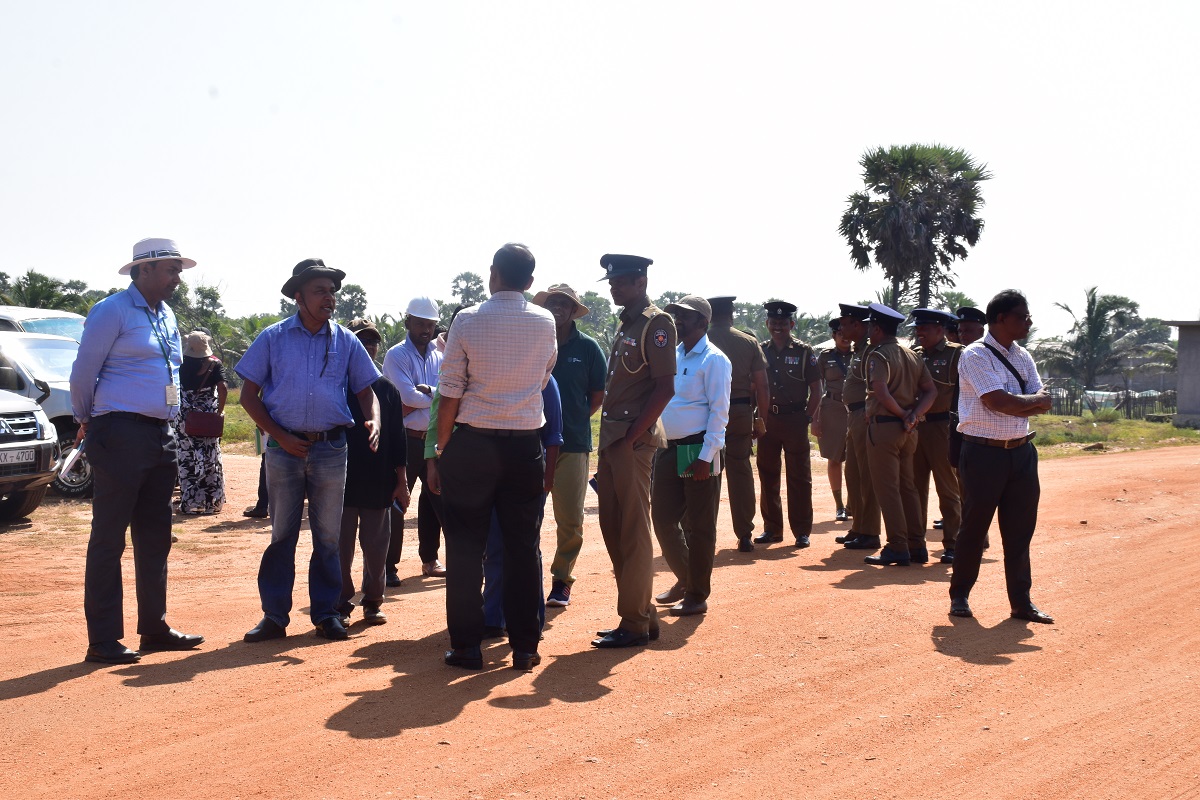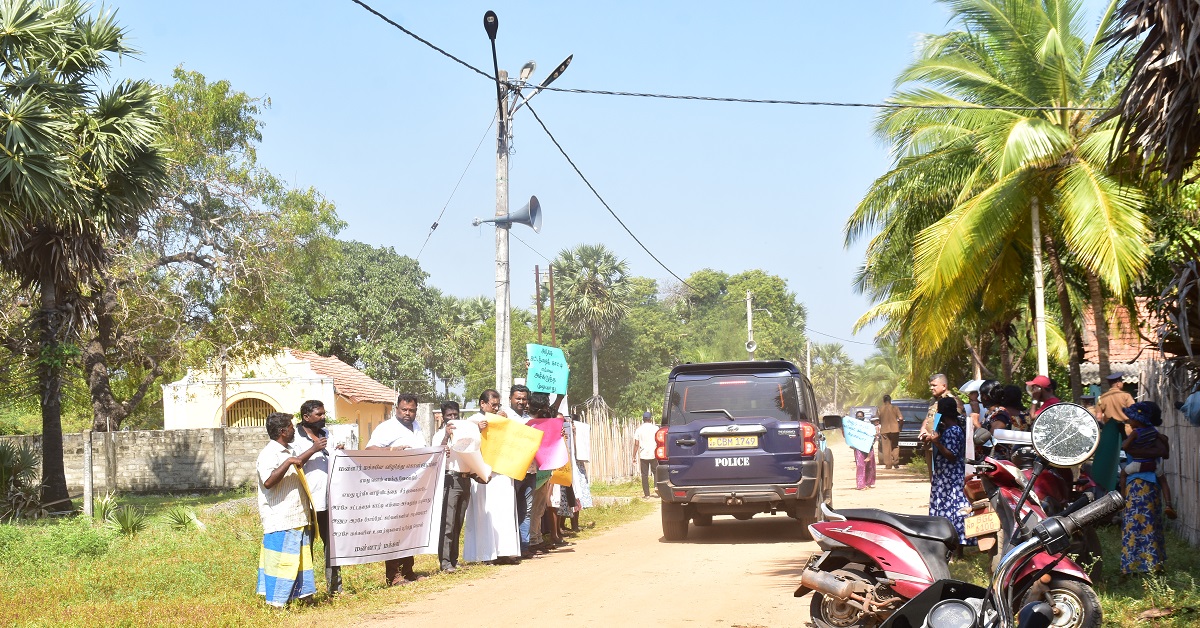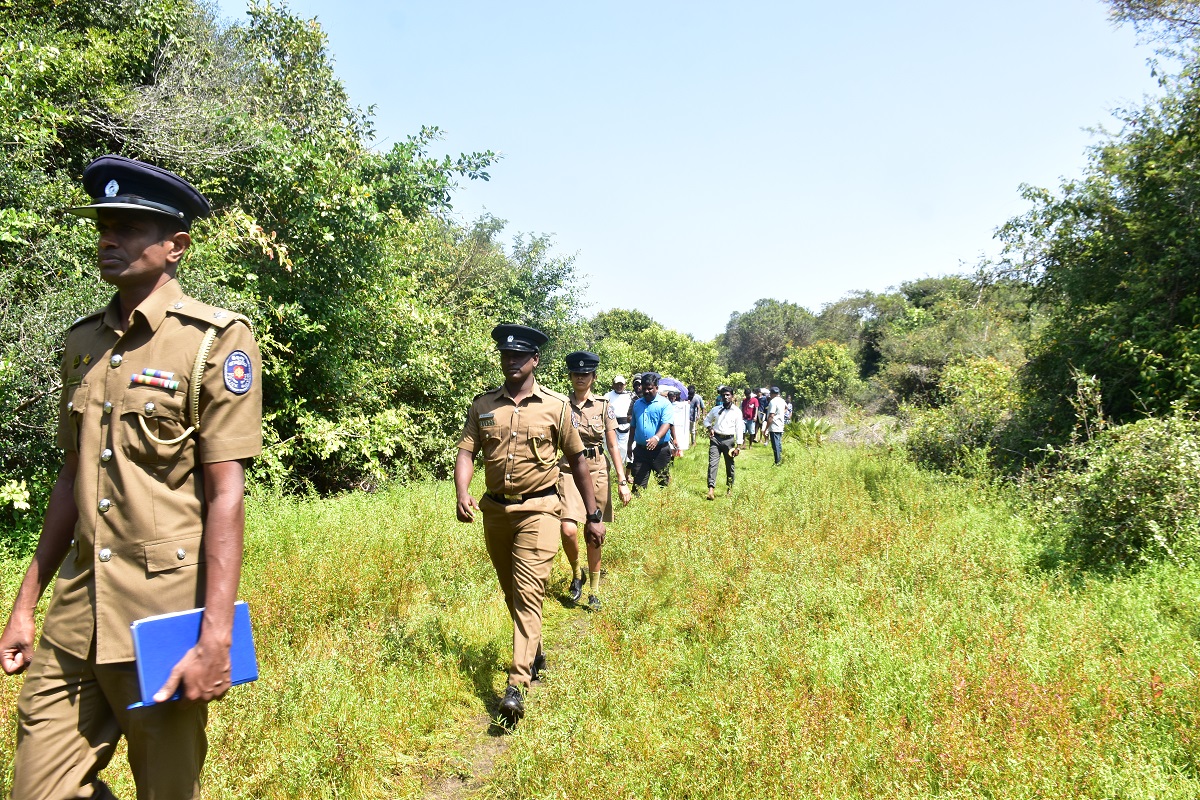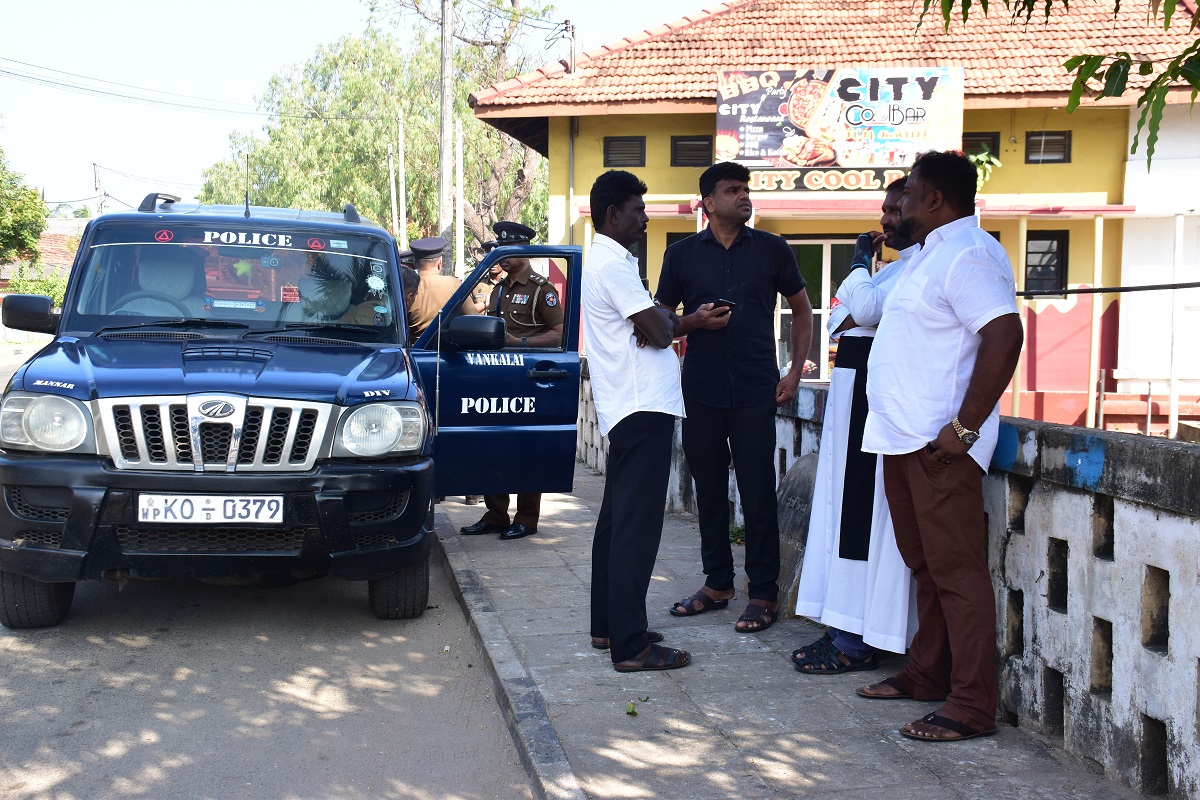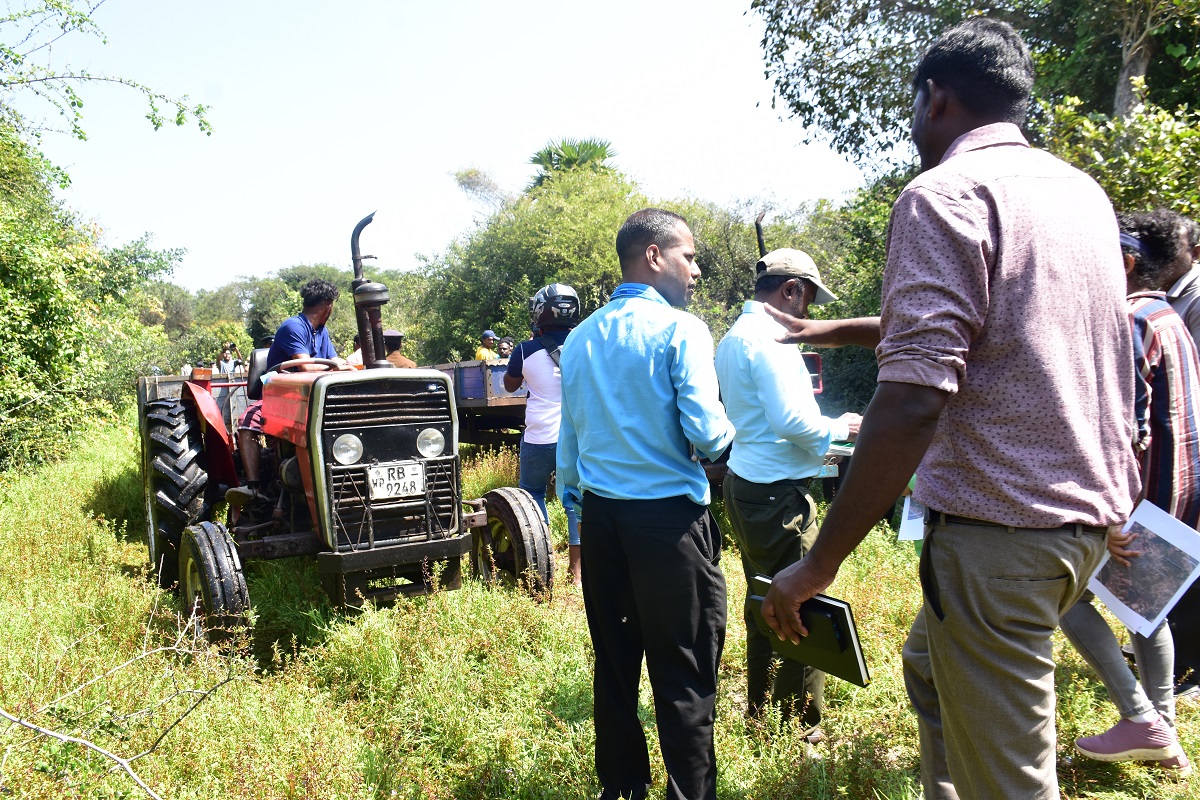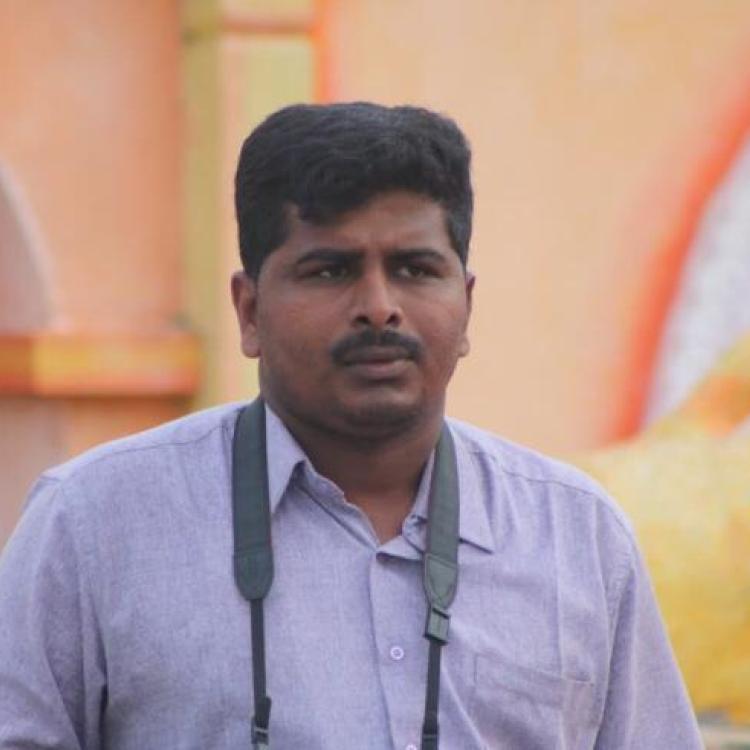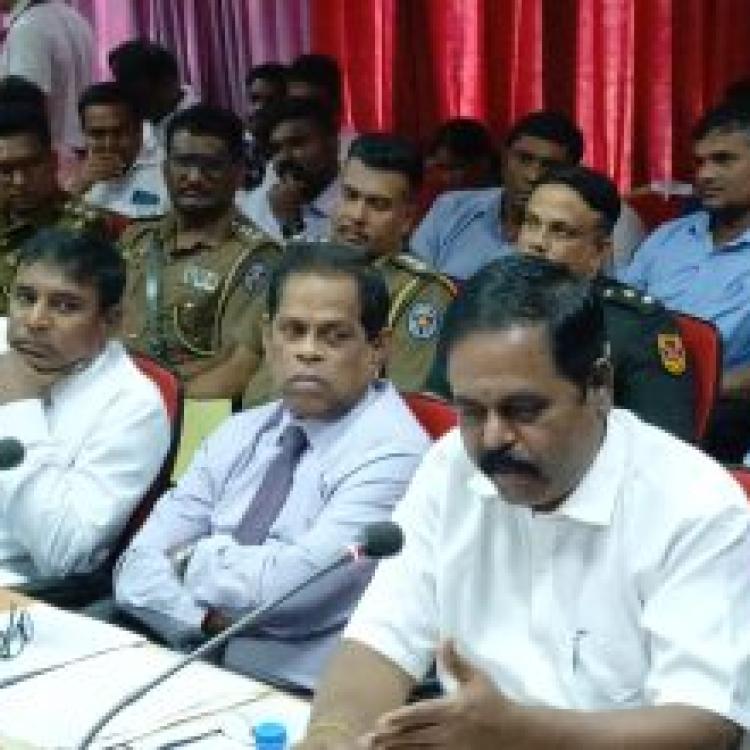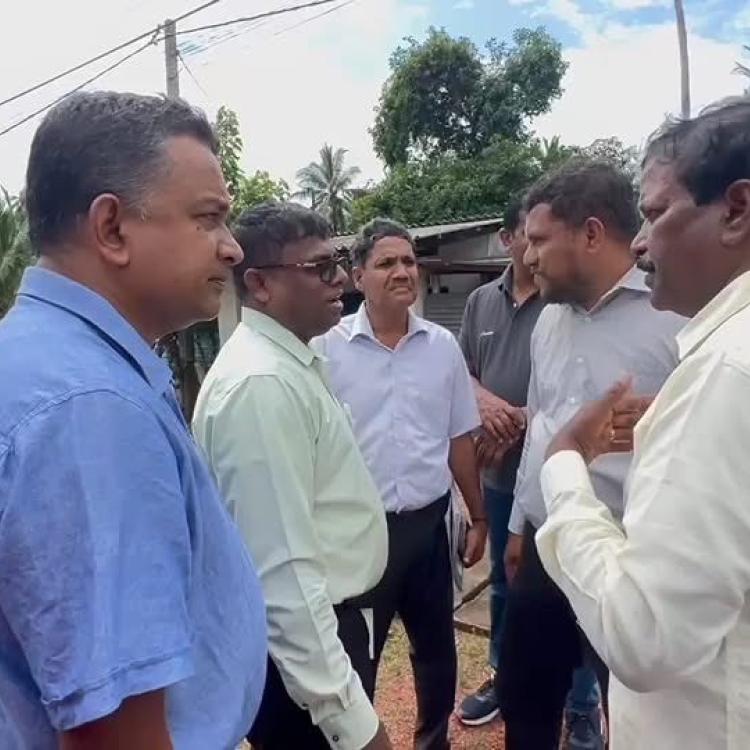A renewed attempt to conduct an environmental impact assessment for a proposed mineral sand mining project in Mannar was halted after strong opposition from local Tamils, forcing Sri Lankan officials to abandon their inspection for the third time.
The latest attempt, which took place on 19 February, saw a team of officials from 23 government departments arrive in the Konnaiyan settlement area of Mannar, led by the Central Environmental Authority (CEA). However, after encountering fierce protests from local residents, they were sent back without completing their assessment.
This marks the third occasion in which field inspections for the controversial mineral sand mining project in Mannar Island have been disrupted by widespread public opposition.
In an attempt to stifle opposition, Sri Lankan authorities had secured a restraining order from the Mannar Court against those organising protests against sand mining. Despite this, Tamil residents remained resolute in their stance, gathering in large numbers to demonstrate against the proposed excavation.
By 9:30 am on the day of the visit, a heavy police presence, including members of the Special Task Force (STF), had been deployed to secure the area. However, as the inspection team made its way to Konnaiyan, local protesters met them with banners and chants condemning the proposed project.
Tamil civil society organisations, fishing communities, and environmental activists have long warned about the devastating impact of mineral sand mining in Mannar. The head of the Federation of Community Organisations, V.S. Sivakaran, has repeatedly asserted that permission "can never be granted" for sand mining in Mannar, stressing that it poses an existential threat to both the livelihood and well-being of the people.
During the protests, Sivakaran was joined by other Tamil activists, including human rights advocate Arutthandai Jayabalan, representatives from fishing organisations, and religious leaders such as kurus adigalar. They unanimously opposed the sand mining project, citing its severe environmental and socio-economic repercussions.
In addition to the protests, the Federation of Community-Based Organisations in Mannar District has sent a strongly worded letter to Sri Lankan president Anura Kumara Dissanayake, calling for an immediate halt to three major projects on Mannar Island: mineral sand mining, wind farms, and coastal soil excavation.
The letter highlights the island’s fragile ecosystem and warns that these projects pose a significant threat to human habitation. "The future of human habitation in Mannar Island is becoming a question mark," Sivakaran states in the letter. “Why develop in a situation where humans cannot live in a healthy environment? Everything in this world, beyond nature, was created by humans for humans. If it is against humans, it is useless.”
Mannar Island, known for its unique geographical and ecological characteristics, is particularly vulnerable to environmental degradation. The letter highlights that the island’s low-lying terrain makes it susceptible to natural disasters, a fact recognized by industry experts who have restricted the construction of high rise buildings. Despite this, the government has pushed forward with large-scale industrial projects, ignoring the concerns of local communities.
The Federation argues that the implementation of these projects would exacerbate existing environmental challenges. For instance, prolonged rainwater stagnation, which already disrupts agriculture, small-scale industries, and fishing—the backbone of Mannar’s economy—would worsen. “Even after a month of rain, rainwater cannot flow and stagnates. As a result, all small, marginal, and cottage industries have been completely affected; agriculture has also been destroyed. Fishing, the main industry, is also affected,” the letter explains.
The letter further accuses the government of dismissing the legitimate concerns of Mannar’s residents as mere emotional appeals, framing the issue as a continuation of the historical marginalization of the North-East. “The government is approaching this as a typical North-East vs. South racist oppression. It is not listening to our democratic voice."
The Federation clarified that it is not opposed to renewable energy projects like wind farms in principle but insists that they should be located in areas where they do not harm human life or the environment. “Wind farms can be built outside Mannar Island where they do not harm humans,” the letter suggests, reminding the President of his election promise to halt the Mannar Wind Farm project.
The letter goes on to state that if the government continues to ignore the demands of the people, the Federation will mobilize widespread opposition to these projects. “No project can be implemented without the will of the people. Trying to implement it in such a way is anti-democratic. We will continue to engage in democratic struggle."
The appeal from the organization comes days after Adani, which was tipped to build a renewable energy project in Mannar pulled out of the deal on their own. They had cited procedural delays and environmental concerns as raised by the local communities. Adani project was to generate 250 MW through the installation of 52 wind turbines in Mannar.
Previously the Sri Lankan government spokesperson Nalinda Jayatissa later confirmed that the project would proceed after renegotiating a lower power purchase rate. However, two weeks later, AGEL its withdrawal from the project, a decision widely believed to be influenced by the government’s stance.
Meanwhile a top Sri Lankan official told The Hindu that Colombo is not seeking to renegotiate the contentious renewable energy project with Adani.
K.T.M. Udayanga Hemapala, Secretary to the Ministry of Energy, told The Hindu: “The company has decided to withdraw from the project, it is their call. We are now in the process of addressing the legal requirements after they decided to close the project. But if the company wishes to return, and commits an investment through the BOI, we are open to talking to them based on our position that the tariff must be lower,” he said. While the government is keen to bring in foreign investments to Sri Lanka, it would not lobby any specific investor, he added. “We welcome all investors through proper channels, they must follow due process. We will ensure that the investments are beneficial to our people.”

